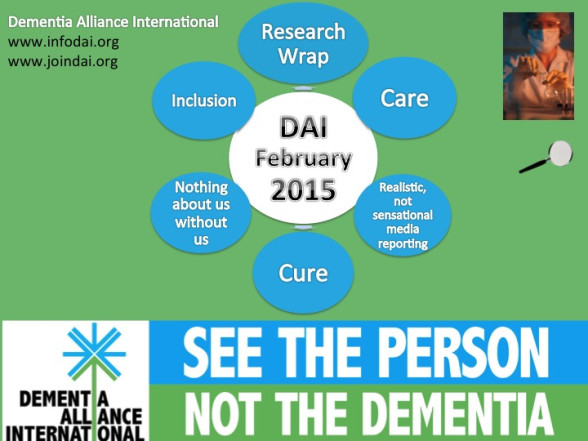 Dementia Research Wrap Up – February 2015
Dementia Research Wrap Up – February 2015
Author: Dr Ian McDonald, Science Communicator, Alzheimer’s Australia
Since my last wrap up in December a lot of new research has been making its way into scientific publications and also the mainstream media. In this short wrap up I thought I’d focus on a few of the studies I found interesting but as always if you want to delve more into it, you can visit the Dementia News blog at http://dementiaresearchfoundation.org.au/blog which is updated regularly.
New research, published in the Journal of Clinical Investigation has revealed that fully functioning microglia can prevent neurodegeneration in mice, moving researchers one step closer to figuring out how to delay or even prevent Alzheimer’s disease onset. Next question - what are microglia? Well microglia are specific types of supportive brain cells that constitute about 10-15% of total brain cells. They assist in maintaining normal brain function and help stave off neurological disorders, such as Alzheimer’s disease. When microglia lose their ability to function, amyloid beta proteins can build up in the brain, inducing toxic inflammation which may lead to Alzheimer’s disease. Therefore it is suggested that people with Alzheimer’s disease have a steady decline in the normal functioning of microglia cells.
It is known that microglia function well in young people but tend to function less effectively as people age. This degeneration is predominately due to a protein that triggers inflammation, known as EP2. In this most recent mouse study, the researchers found that blocking the action of the EP2 protein restored the ability of microglia to do their job. More specifically, they found that blocking the EP2 protein reduced brain inflammation and cleared toxic markers which cause cell death, as well as prevented cognitive decline in Alzheimer’s-afflicted mice.
I also came across another interesting study published in the International Journal of Alzheimer’s Disease which was looking at dementia within twins. To be eligible for the study, one twin had to have been diagnosed with a form of cognitive impairment or dementia and the other not. One of the research questions they were looking at was whether playing a musical instrument in later life was a protective factor against dementia, and it turns out that is just might be. Of the 157 sets of twins (i.e. 314 individuals) the researchers had in the study, 31 individuals identified that they played a musical instrument. When they delved further into these 31 musicians, 27 were found to be cognitively healthy, while four had dementia. So when the researchers analysed this specific group of twins (controlling for gender, education, and physical activity) they found that those participants who played an instrument in older adulthood had a 64% lower likelihood of developing a cognitive impairment or dementia. This result certainly provides more evidence that learning a new hobby (such as a musical instrument) may be able to stimulate your brain and reduce your risk of dementia. Plus it is well known that music can also be used to help improve the quality of life and behaviour for those who are living with dementia.
Another study, published in the journal JAMA Internal Medicine stated that ‘anticholingeric medications’ may increase your risk of dementia. Anticholinergic meds include things like hay fever tablets, sleeping pills, asthma drugs and anti-depressants and they are designed to block a neurotransmitter called acetylcholine, which is involved in transmitting information between nerve cells. In this study, the researchers analysed the medical records of 3,434 participants (65 years or older and all without dementia at the beginning of the study). Over a ten year follow up period, 797 participants (23 percent) developed a form of dementia, and those who were taking high doses of prescription anticholinergic medications for more than three years were at a greater risk compared to those who were not taking these types of medications. It is important to stress that the current results do not suggest that these medications cause dementia, nor does it suggest that a specific type of anticholinergic medication is linked to a higher risk. More research is required to answer these questions. The researchers also stress that these results do not suggest that people who are taking either over the counter or prescription anticholinergic medications should cease to do and if concerned, suggest talking to your general practitioner, pharmacist or a health professional about the risks and benefits of the medications, particularly if alternative medications may be available.
Thanks for reading the February 2015 Dementia Research Wrap Up.
Thank you for writing it for DAI Dr McDonald, and at a generous pro bono rate.
